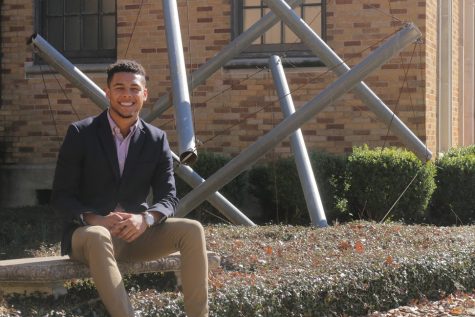Opinion: Mississippi’s Education Vacuum

The Freedom Project is an afterschool and summer program that helps underprivileged students in the Mississippi Delta. They have outposts in Meridian, Rosedale, and Sunflower County. Tutors work with students of all ages to provide fun and innovative ways of learning different school subjects. The program also offers electives such as theatre, film making, and poetry.
Jeremiah Smith, the director of the Rosedale Freedom Project, witnesses the downfalls of the Mississippi education system every day. “Some of these kids don’t even have quality teachers. Our students that we tutor use virtual Spanish teachers in place of a real teacher, eat lunch in classrooms because they don’t have a cafeteria, and don’t even have a gym.”
A few weeks ago, the state of Mississippi announced a new budget plan that includes spending less on public education, limiting transportation funds, and increasing tuition for higher education institutions.
In fact, the education budget will see a $40 million decrease within the next year. U.S. News reports that “Mississippi needs to spend $2.43 billion next year to provide a mid-level education to its public schools, leaving schools $233 million short.”
However, budget cuts are not a new phenomenon in Mississippi. Just in the past fiscal year, Gov. Phil Bryant has implemented four budget cuts and in the past eight years Mississippi schools have been underfunded by more than a billion dollars. These cuts further limit resources, adequate teachers, and programs that other states have in effect.
“By finding creative ways for the students to learn, we hope to go against the status quo of Mississippi education to create an environment where students actually want to learn and better themselves. Our job is to make sure that they have the education they need and are ready to go out into the real world,” Smith said.
There is a distinct correlation between the lack of funding in education and the performance. In a national rating report conducted by Education Week’s Quality Count, Mississippi ranks 50th among states in education. On the other hand, the National Assessment of Educational Progress ranks Mississippi last in the nation for academic achievement.
Numerous school districts around the state have performed so poorly that they are in constant danger of losing accreditation. The Clarion Ledger reports, “More than 60,000 students in Mississippi attend school in a failing district.” Since 1996, Mississippi has taken over 15 school districts, but there has been no evidence that suggests the takeovers are effective.
Nevertheless, Mississippi legislators have been trying to solve the state’s education issues for decades now. In 1997, the state implemented the Mississippi Adequate Education Program (MAEP).
The MAEP formula provides a base cost that schools must match to provide an adequate education. 27% of the costs must be raised by the school district and the state funds the difference based off of criteria such as attendance. However, the MAEP formula has only been followed twice in the 20 years since its creation.
The state’s lack of wealth also has a major impact on the discrepancies between districts of high incomes and districts of low incomes. Mississippi ranks 40th in the nation on how evenly money is spread throughout its education system.
Though Mississippi maintains the national average on how much is spent on education though taxes, 3.6 percent, schools are still underfunded because of Mississippi’s subpar income levels. This results in better funding and schooling for districts of higher wealth and a blatant disregard for education in impoverished communities.
Mississippi’s education system can still be saved with a reimagined education plan and an emphasis on smarter tax expenditures. It also wouldn’t hurt to provide incentives for more companies to move into Mississippi to help jumpstart the economy.
With cut to the budget, programs like the Freedom Project may be underfunded, but Smith has hopes for the program, “I think we’ll be just fine. We have a lot of people that truly support what we do. As long as we can get the support we need, we’ll keep educating the youth. They need us now more than ever,” Smith said.

Nick Houston is a Senior English major from Slidell, Louisiana. This is Nick's second year on the Delta Statement staff. A part from school, Nick is in...


